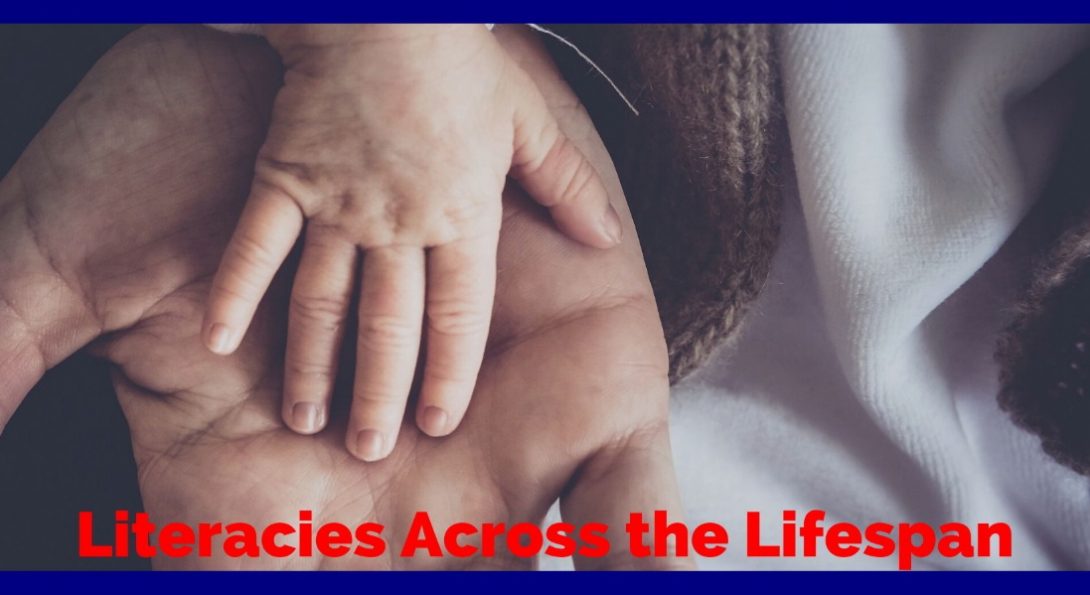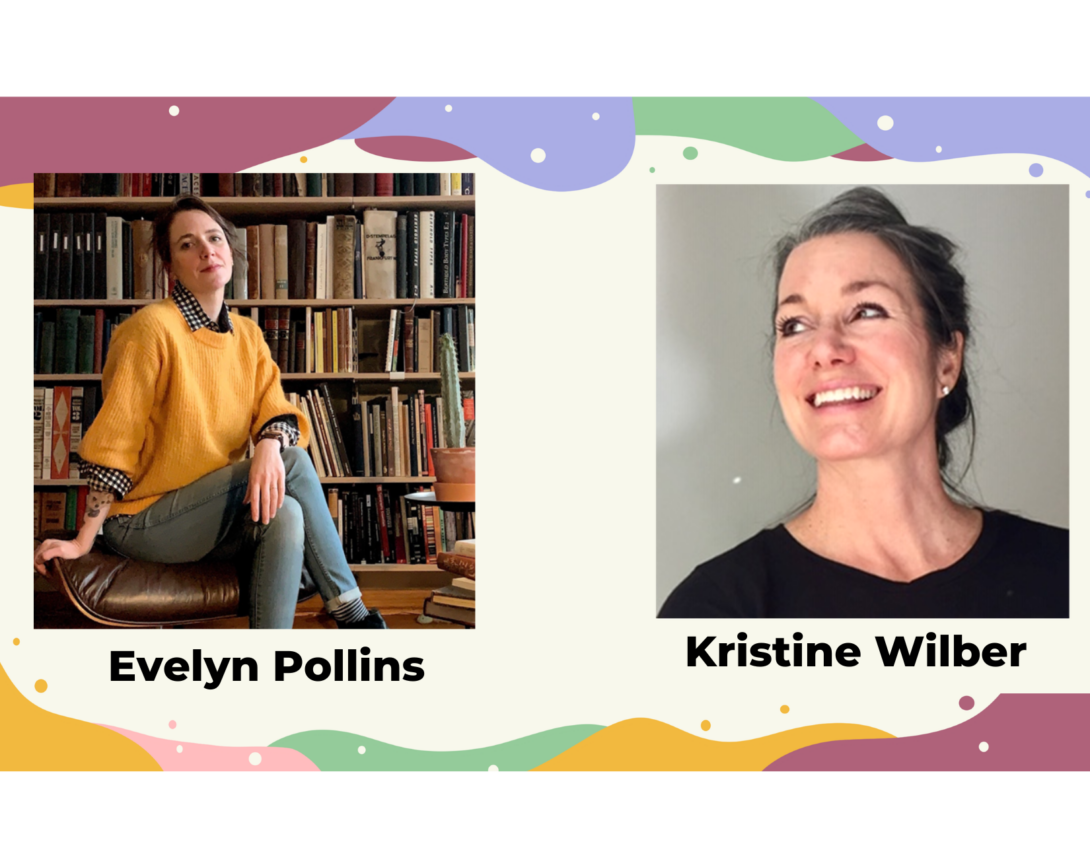Literacies Across the Lifespan Journal

Scope
Through the publication of peer reviewed empirical research, working papers on field-based praxis, and conceptual pieces, Literacies Across the Lifespan (LAL) contributes to ongoing conversations about literacy across learners’ lives, from early childhood to adulthood, and in contexts across home, school, and community settings. LAL offers early career scholars an inclusive, open, and nurturing environment in which to explore the writing, review, and publication processes.
The investigation, exploration, and pedagogization of non-textual literacies (e.g., artmaking, oral storytelling, digital/media literacies, etc.) is welcome, in addition to studies of textual reading and writing meaning-making practices. Literacies Across the Lifespan seeks to represent diverse and new paradigms, methodologies, and perspectives, and to promote ethical scholarly writing that honors learners and educators. Literacies Across the Lifespan is run by graduate students at UIC’s Center For Literacy.
Volumes & Issues
-
Volume 1, Issue 1
Individual links to each article:
- Domínguez-Fret, N. D. (2021). Making research accessible to communities outside of academia: Dual language education, critical language pedagogy, and translanguaging. Literacies Across the Lifespan, 1(1), 3-12
- Diaz, A (2021). Culturally sustaining pedagogy in teacher education. Literacies Across the Lifespan, 1(1), 13-19.
- Nixon, M. D., & Walker, M. E. (2021). Healing homes for Latinx school communities through critical literacy theory. Literacies Across the Lifespan, 1(1), 20-23.
- Nixon, T., Norman, C., & Robledo, E. (2021). Youth-led and youth-centered writing: A practice of healing. Literacies Across the Lifespan, 1(1), 24-28.
- Maxwell, S. (2021). Word sharing that fed our souls. Literacies Across the Lifespan, 1(1), 29-30.
-
Volume 1, Issue 2
Individual links to each article:
- Vroom Fick, S. (2021). Developing Critical Language Awareness Through the Evaluation of Multilingual Children’s Literature. Literacies Across the Lifespan, 1(2), 3-11.
- Yeom, E. Y. (2021). Translanguaging Pedagogy for Emergent Bilingual Immigrant Youths in the United States: Is It Transformative? Literacies Across the Lifespan, 1(2), 12-23.
- Yi, J. (2021). How Pinteresting! The Emergence of a New Curricular Resource. Literacies Across the Lifespan, 1(2), 24-30.
- Lesus, M. (2021). Culturally Relevant and Culturally Sustaining Practices in English Language Arts Classrooms. Literacies Across the Lifespan, 1(2), 31-40.
- Holcomb, K. (2021). Pedagogical Reflections on Making and Literacy Development: How to Transform Makerspaces to Cultivate Literacy. Literacies Across the Lifespan, 1(2), 41-43.
-
Volume 2, Issue 1
Individual links to each article:
- Escucha el artículo leído por Norma Monsivais Diers: Cuestionando Mitos Comunes Acerca del Bilingüismo
- Zhang, Xue, Lysaker. (2022). Between and Within the Pictures: Gaps and Imagination in Comprehending Wordless Books. Literacies Across the Lifespan, 2(1), 3-12.
- Monsivais Diers (2022). Cuestionando Mitos Comunes Acerca del Bilingüismo: La Importancia de Aprender Español e Inglés Para los Estudiantes Latinos, Literacies Across the Lifespan, 2(1), 13-18.
- Jiao, Moses, Scott (2022). Fostering Media Literacy Skills among Middle School Students through Animated Films: A Case Study in a Children’s Defense Fund Freedom School Program, Literacies Across the Lifespan, 2(1), 19-31.
-
Volume 2, Issue 2
Individual links to each article:
- Aguuilar, Jodi. (2023). An Anzaldúan Approach to Curriculum: Envisioning Chicanx Cuir (Queer)/Trans Futurity in K-5 Classrooms. Literacies Across the Lifespan, 2(2), 3-10.
- Zargoza, Massiel (2023). Fomentando la colaboración en dos idiomas entre maestros en programas de lenguaje dual a nivel secundario. Literacies Across the Lifespan, 2(2), 11-17.
- Pollins, Evelyn (2023). “We Learned to Read, to Speak, to Write, and to Make Our Voices Heard”:Paulo Freire’s Literacies in The Last Cuentista, Literacies Across the Lifespan, 2(2), 18-24.
- Goldenstern, Joyce (2023). Shifting Literacies in “Carried Away” by Alice Munro. Literacies Across the Lifespan, 2(2), 25-31
- Gallman, Jennifer (2023). Critical and Authentic Reading in Secondary English Arts Classrooms, Literacies Across the Lifespan, 2(2), 32-40
Information
Submission Guidelines
Please submit manuscripts to Kristine Wilber at kwilbe2@uic.edu and Evelyn Pollins at epolli2@uic.edu. Please specify which category your submission is in, and ensure that your word count aligns with that category. Categories are all mentioned below. All submissions should observe APA 7th edition conventions. Make sure that the text of your manuscript does not contain any identifying information. If needed, use the placeholder “AUTHOR” to anonymize your manuscript and/or the references therein.
- (Peer Reviewed) Empirical Research:
Approximately 4,000-6,500 words, inclusive of references
These manuscripts are examinations of observable phenomena rather than ideology or theory. These manuscripts should include explanation of the author’s phenomenon of interest, theoretical orientation, methods of data collection and analysis, findings, discussion, and implications for theory, research, policy, and/or practice. We would expect these manuscripts to craft an argument situated in extant literature and offer conclusions supported by analysis of data. These manuscripts will be peer-reviewed and the research they analyze should be IRB-approved.
We welcome rigorous study and analysis of literacy in both formal and informal contexts, and across learners’ lifespans. We welcome manuscripts from varied theoretical orientations and using varied methodologies.
- (Peer Reviewed) Connections:
Approximately 1,500-4,000 words
These conceptual pieces push our thinking forward by theorizing new or different approaches to literacy research, teaching, and learning. These pieces should include well-developed examination of relevant literature, clear explanation of the conversation in which this analysis intervenes, rigorous methodology (in cases of literature reviews), discussion, and implications. These pieces should make a clear argument and articulate the significance of their contributions.
Suggestions for these pieces include (but are not limited to): bringing together two seemingly different theoretical stances, interrogating taken-for-granted assumptions in literacy education, applying a conceptual lens to a contemporary issue or current event, or offering a critical examination of the history of a specific phenomenon in literacy education, policy, or research.
These pieces may include (but are not limited to): literature reviews, polished qualifying exam essays, excerpts of dissertations or theses, or excellent term papers completed as part of coursework.
- (Non Peer-Reviewed) Notes From the Field:
Approximately 1,500-4,000 words
These working papers are reflections on literacy pedagogies, curricula, programs, and/or practice. At least one of the authors should be a practitioner analyzing their own context/work. These papers should include explanation of the author’s context, the particular pedagogy/curricula/program, connections to existing literature (if relevant), discussion, and implications. While these manuscripts are not peer-reviewed and do not require IRB approval, authors of accepted pieces that refer to specific individuals or places will be asked to submit signed consent forms from participants represented in these pieces. Participants must know they are being written about and have the opportunity to select a pseudonym if they wish.
Possible topics for exploration include (but are not limited to): a particular unit or lesson sequence, the implementation of a theoretical orientation in specific teaching moves, the incorporation of learners’ perspectives in shaping curricula, innovations in program development and/or evaluation, and analysis of “failures” or re-visioning curricula toward improved teaching and learning.
- (Non Peer-Reviewed) Book Reviews:
Approximately 1,000 – 1,500 words
We publish short reviews of academic books, which include the result of academic research and innovative literacy education across the lifespan. Our intention is to introduce academic resources, which contribute to a field of study, to emergent scholars. We suggest including a brief introduction of the topic addressed in the book, a summary of the book’s content and argument with the author(s)’ basic biographical information, strength, and weakness of the book, and conclusion. We do not consider reviews of books written by your friends or former teachers/students.
In your review, please add the following information at the top of the first page: Title of book, Author/editor/translator/illustrator/photographer, Publishing house and publication year, and ISBN. At the end of your submission, please include your bio of up to 30 words.
Editors

Evelyn Pollins is a doctoral student in the Literacy, Language, and Culture program. Her research focuses on how students construct and articulate reading identities in elementary classrooms as well as broad interests in children’s literature history, publishing, and uses in the classroom. Before joining the LLC program she was an elementary teacher in Chicago Public Schools for 13 years. As co-editor of LAL, she is excited to highlight a wide variety of perspectives and bring more graduate students into the process of submitting to and creating academic journals.
Kristine Wilber is a doctoral candidate in the Literacy, Language, and Culture program. Her research focuses on writing in secondary ELA classrooms and post qualitative inquiry. Before joining the LLC program she was a high school English teacher in Chicago Public Schools for 11 years. As co-editor of LAL, she is committed to helping other new scholars understand and practice the publication process.
content
Graduate students, recent graduates, and early career faculty are invited to review for Literacies Across the Lifespan. Serving as a peer reviewer is a great professional development opportunity for those interested in providing critical feedback to their peers or exploring peer reviewing for other journals in the field.
If you are interested in reviewing please simply fill out this Google Form: https://docs.google.com/forms/d/1IlSU3D_Y_IqxPyfCPLEvWoxXxO40yX2CmdcilurzvTA/edit
Training will be provided for those who are interested in reviewing. Reviewers will be able to accept or decline potential manuscripts depending on their availability at the time that manuscripts are shared. Please contact Evelyn Pollins (epolli2@uic.edu) with any questions.
Those interested in the reviewing process both from the perspective of a reviewer and an author are invited to watch the webinar below titled: How Does the Journal Review Process Work?